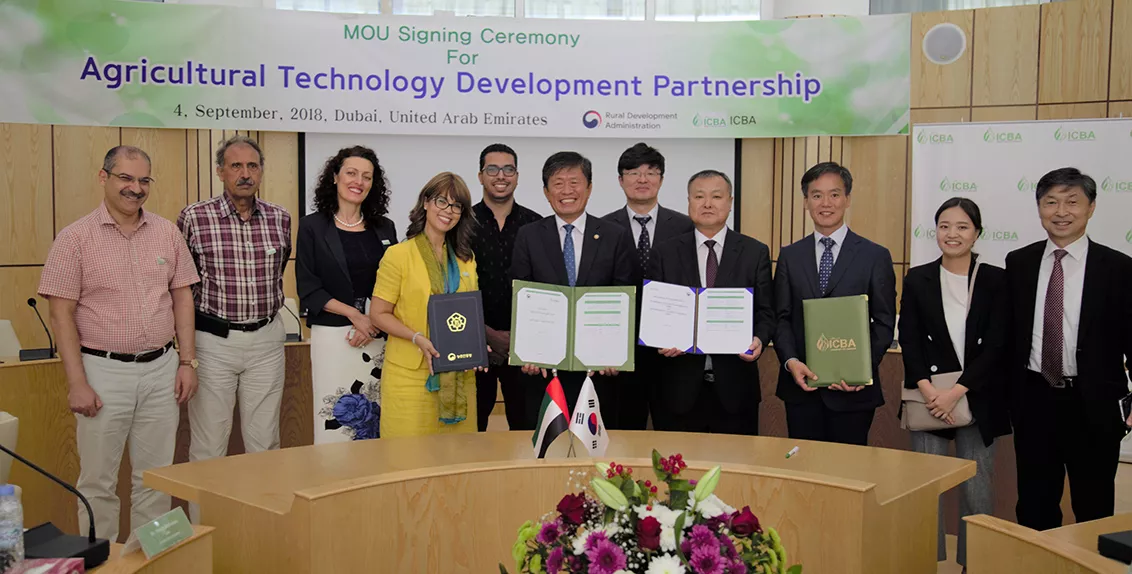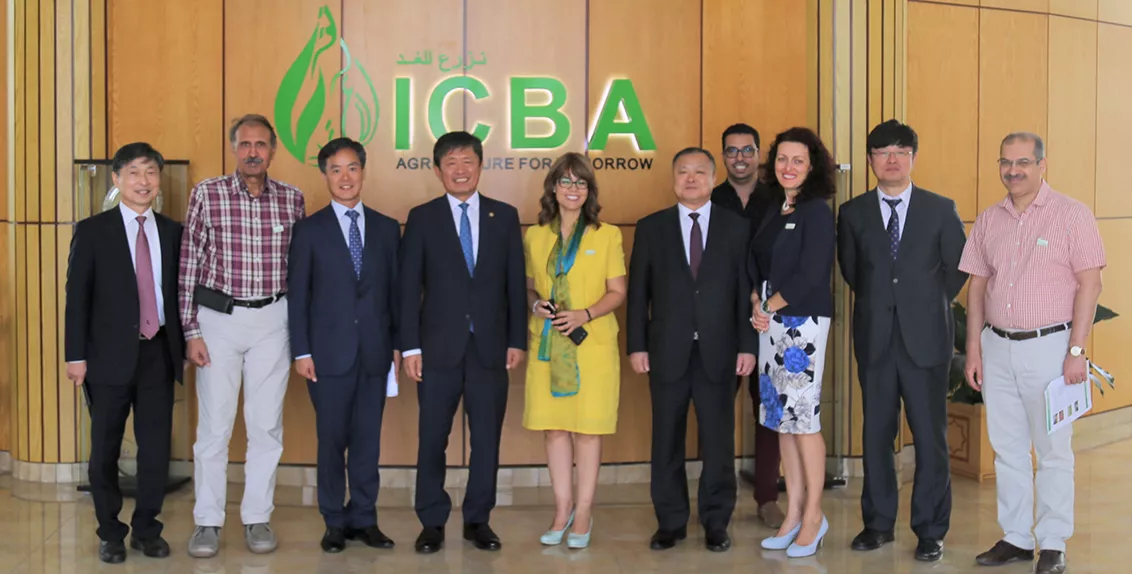ICBA, South Korean agriculture agency join forces for biosaline R&D
4 September 2018
Today the International Center for Biosaline Agriculture (ICBA) and South Korea’s Rural Development Administration (RDA) formed a strategic partnership to work on advanced knowledge and technology exchange for biosaline research and development in the UAE and South Korea.
The partnership will pave the way for closer cooperation between the organizations, which share broad objectives of supporting rural farming communities through agricultural R&D and extension.
The organizations signed a memorandum of understanding to this effect during a visit to ICBA’s head office in Dubai by a senior delegation from RDA.
ICBA and RDA will collaborate on improving food security in the two countries by adopting innovative technologies such as advanced sensor technologies, net-houses and vertical farming, as well as finding genes responsible for salt tolerance in plants with a particular focus on drought and salinity resilience of rice. Both organizations will also explore areas of possible joint research in line with the UAE needs, specifically in salinity, agricultural production and food security.
As a center of research excellence, ICBA will also host students and scientists from South Korea to conduct research on salinity and other fields. The collaboration also provides for exchange of scientists between ICBA and RDA.
During the meeting with the delegation, Dr. Ismahane Elouafi, ICBA Director General, said: “We are very optimistic about our partnership with RDA. We have complementary strengths and know-how; RDA is known for its cutting-edge technologies and ICBA has 19 years of experience in breeding crops tolerant of salinity and promoting improved water management in marginal environments. If we combine our efforts, we can achieve more and do more for our stakeholders, particularly farmers and rural communities that face growing challenges to their agricultural activities.”
For his part, Dr. Ra Seung-yong, RDA Administrator, said: “Recently, Korea’s need to conduct researches on climate change has been growing due to crop cultivation issues caused by abnormal weather such as heat wave. Thus, we believe this MoU signing is very timely and is aligned with the goal of mutual benefit for both countries. We expect that our collaboration in agricultural technology using sensor in Korea, smart greenhouse, and automation technology for plant irrigation and fertigation will greatly contribute to the agricultural development in the UAE.”
Following the meeting, the delegation toured ICBA’s facilities, including the Emirates Soil Museum, the gene bank, net-house and greenhouse facilities, the Integrated Aqua-Agriculture System, biochar production sites, and experimental fields on date palm, Salicornia and forages.
The collaboration with RDA is part of ICBA’s efforts to extend the reach and impact of its research and development initiatives in other countries and thus contribute to United Nations Sustainable Development Goals (SDGs).
Through its research-for-development efforts, ICBA has positioned itself as one of the world’s leading centers in biosaline agriculture and has developed tailor-made solutions to the problems of salinity, drought and water scarcity in marginal environments of the world. Under its mandate, the center works towards a number of SDGs, particularly SDG 1 and SDG 2 on poverty and hunger, as well as SDGs 6, 13, 15 and 17.
The center is uniquely placed to introduce much-needed climate-smart crops and technologies in different parts of the world to alleviate projected food and water crises.












